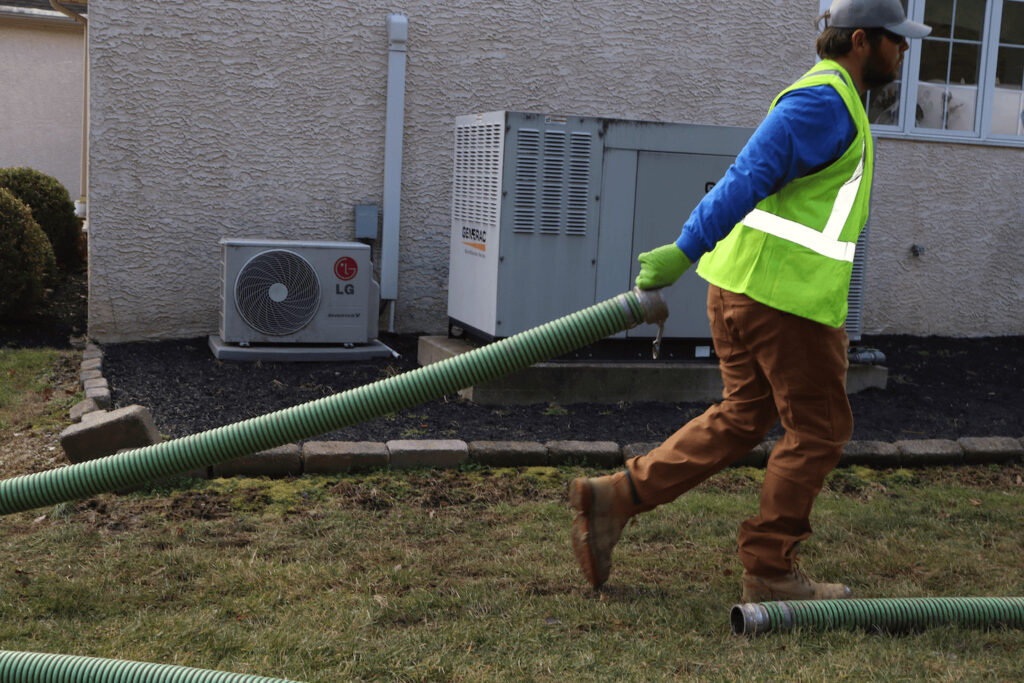How well do you know your septic tank? If you said not well, you’re probably a part of the majority. However, septic tanks play a necessary role in managing household wastewater when a property is not connected to a centralized sewer system. As an essential part of the plumbing infrastructure, septic tanks require regular maintenance to continue to function normally and to prevent costly repairs.
Let’s explore why you should be scheduling a regular septic pumping, how often “regular” really is, signs that indicate the need for a septic pumping service, and tips for choosing a reliable septic tank pumping service.

Importance of Regular Septic Tank Pumping
Regular septic tank pumping is needed so that your comfy home doesn’t become a smelly home. Regular maintenance will prevent backups, sewage leaks, and potential health hazards. By removing accumulated sludge and scum, pumping helps maintain the drainage component’s effectiveness and prolongs its lifespan. Forgetting to schedule septic tank maintenance can result in expensive repairs or even the need for a total system replacement.
To Pump or Not to Pump?
The frequency of septic tank pumping depends on several factors, including tank size, household usage and the number of people that live in your household. As a general rule, septic tanks should be pumped every 1 to 3 years. However, this isn’t a steadfast guide: we recommend a pump every 3 years for single households, every 2 years for households with 2 or 3 occupants, and annually for families of 4 or more. Consulting with a professional septic tank service, such as Delaware Valley Septic, Sewer, and Storm can help determine the ideal pumping schedule for your specific situation.
Signs That Your Septic Tank Needs Pumping
Recognizing the signs that your septic tank requires pumping is key to avoiding potential issues. Some common indicators include particularly smelly odors around the property, slow drains or toilets, or gurgling sounds coming from your pipes indicates there may be a blockage in or after the septic tank. If any of these signs are present, placing a call to your local sewer and septic professional just jumped to the top of your to do list.

Septic Tank Maintenance Pro Tips
To keep your septic system functioning properly, there are several maintenance tips you can follow. As discussed, regularly inspecting and pumping the tank as needed is essential. But you should also be mindful of what you flush down the toilet or pour down the drains. Harsh chemicals and non-biodegradable items can harm the bacteria in the tank that break down waste, which can cause a slew of other (costly) problems that will need to be addressed. The only way to counter act how we live inside is to pump outside.
Septic tank pumping is just one aspect of proper septic system maintenance. To ensure optimal function, it’s essential to have your overall septic system inspected and pumped regularly. The frequency of septic tank pumping will depend on factors such as household size and water usage. It’s recommended to have a professional inspection and pumping every 1-3 years depending on the type of system.
Happy Pumping!
Regular septic tank pumping is a significant aspect of responsible homeownership. By prioritizing this maintenance task, you can prevent costly repairs, extend the life of your septic system, and protect the health and well-being of your family. Remember, a healthy septic system starts with routine pumping and maintenance. By being proactive and staying on top of maintenance, you can ensure a healthy septic system and a stress-free homeownership experience.




